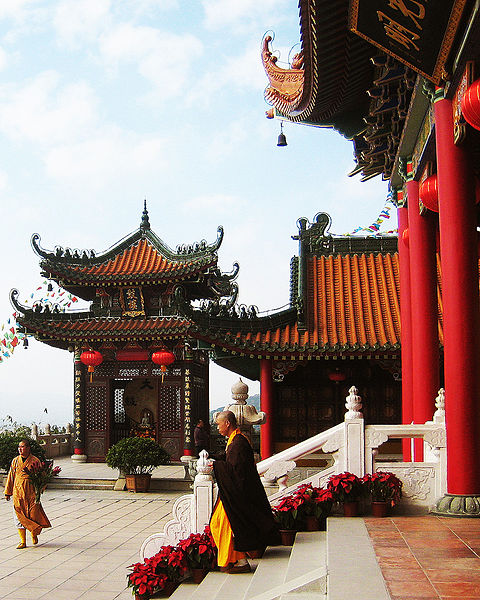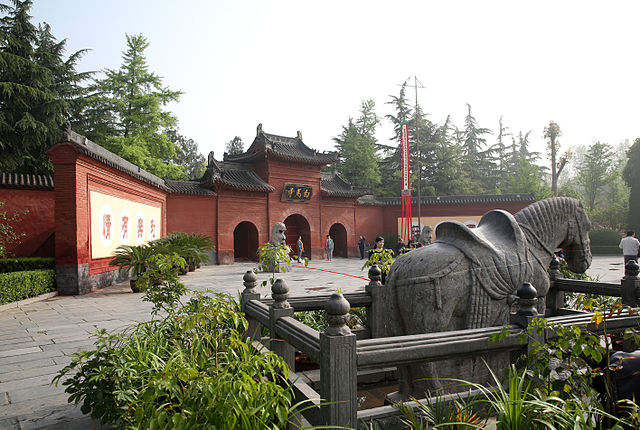Humanistic Buddhism is a modern philosophy practiced by Buddhist groups originating from Chinese Buddhism which places an emphasis on integrating Buddhist practices into everyday life and shifting the focus of ritual from the dead to the living.
Main shrine from the Fo Guang Shan Monastery, Fo Guang Shan, a Humanistic Buddhist organization.
Chinese Buddhism or Han Buddhism is a Chinese form of Mahayana Buddhism which draws on the Chinese Buddhist canon as well as numerous Chinese traditions. Chinese Buddhism focuses on studying Mahayana sutras and Mahāyāna treatises and draws its main doctrines from these sources. Some of the most important scriptures in Chinese Buddhism include: Lotus Sutra, Flower Ornament Sutra, Vimalakirtī Sutra, Nirvana Sutra, and Amitābha Sutra. Chinese Buddhism is the largest institutionalized religion in mainland China. Currently, there are an estimated 185 to 250 million Chinese Buddhists in the People's Republic of China. It is also a major religion in Taiwan, Singapore, and Malaysia, as well as among the Chinese Diaspora.
Buddhist monks at Jintai Temple in Zhuhai, Guangdong
Interior of the Ling Shan Brahma Palace in Wuxi, Jiangsu
A Buddhist house assembly
White Horse Temple in Luoyang, one of the earliest Chinese Buddhist temples





